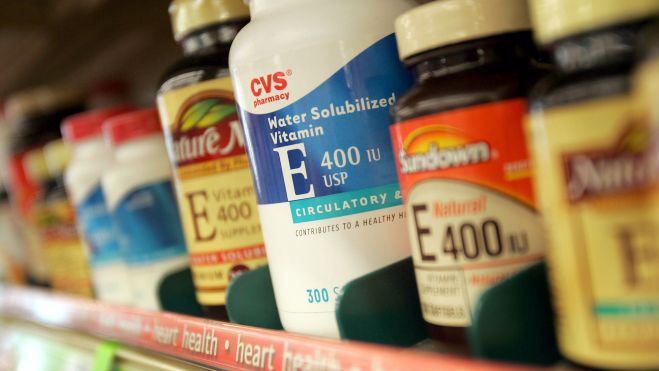現在位置 : 保健 > 國際藥聞-醫學期刊:別再浪費錢買維他命
|
(爭議性主題)
國際藥聞-醫學期刊:別再浪費錢買維他命 中時電子報 作者: 諶悠文 2014年1月12日 上午5:30 許多人補充綜合維他命,希望能防癌、預防心臟病和減緩記憶力衰退。但《內科醫學年報》日前發表社論指出,消費者別再浪費錢,去買綜合維他命和其他的營養補充劑,因為沒有證據證明吃了有效果,還可能有害。 這篇標題為《真的是夠了:不要再浪費金錢補充維他命和礦物質》的社論指出,大多數營養補充品無法預防慢性病或死亡,應該避免服用,這些年的研究結果大多令人失望。 撰寫這篇社論的約翰霍普金斯大學彭博公共衛生學院研究員瓜拉爾說:「我們一次又一次發現,吃營養補充劑沒有用…我們從此不必繼續研究。」 該期刊除了這篇社論,還搭配兩篇探討綜合維他命功效的論文,和美國預防醫學工作小組的報告。其中一篇論文追蹤近6000名年逾65歲的男性醫生,長達11年,結果發現吃綜合維他命,無助於減緩認知功能衰退。 第二篇論文則顯示,補充高劑量綜合維他命,無助於防止心臟病復發。而美國預防醫學工作小組先前發表的報告也指出,補充維他命和礦物質,有助於預防癌症或心血管疾病的證據有限,一些研究甚至發現可能對人體有害,尤其是抽菸者補充β胡蘿蔔素,反而會增加罹患肺癌的風險。 不過研究並未發現,若服用符合建議標準劑量的綜合維他命,會對人體造成傷害。研究員瓜拉爾說,對消費者而言,一個可能的壞處是白花錢,而研究經費也被浪費掉。不過他說也有例外,譬如:衛生官員強烈敦促育齡婦女補充葉酸,以降低胎兒畸形風險。 |
|
Vitamin Pills 'are Useless'
2014-1-4 Vitamin pills have no health benefits and are a waste of money, a major report says today. They give no protection against diseases, including serious illnesses such as cancer, strokes or heart disease, Oxford University scientists found. And those who take them would be better off simply spending their cash on fruit and vegetables. Research leader Professor Rory Collins said: 'They are safe - we didn't find any hazards. But they are useless.' The findings of the first study to test the long-term effects of the three most popular types of vitamin pill will shock millions of Britons. We spend £175million a year on supplements and pills that contain antioxidants claimed to help combat disease. Most popular are vitamins C and E, and beta-carotene, the pigment found in carrots, tomatoes and broccoli, which the body converts into Vitamin A. Ten million Britons take these vitamins regularly. In their groundbreaking study, the researchers tracked 20,000 people. Half were given daily doses of vitamin C, vitamin E and beta-carotene for five years, the other half were given dummy pills. Those taking the vitamins were just as likely to die from any cause over the period of the study, the scientists report in medical journal The Lancet. They had no protection against a heart attack, stroke or cancer. There was also no benefit to bone or eye health. Though it has been suggested that vitamin E might slow the decline of the brain, the researchers found no evidence of any benefit. Rates of respiratory disease such as asthma, also thought to be helped by antioxidant vitamins, were the same in people taking the supplements and those taking dummy pills. Those on vitamins actually had a small but definite increase in the amount of 'bad' cholesterol compared to those taking dummy pills, though this did not translate into an increased risk of ill health. Professor Collins said: 'We continued the treatment for five years and we saw absolutely no effect on vascular disease or any cancers. 'There have been claims that vitamins might protect you against cataracts, there was no effect; that vitamins might prevent fractures by preventing osteoporosis, there was no effect.' He said the best way to get vitamins and minerals was from a healthy diet rich in fruit and vegetables. 'There is no need to supplement this with vitamin pills.' Fellow researcher Dr Jane Armitage said the doses given to the volunteers were equivalent to many over-the-counter supplements. The patients, aged 40 to 80, were deemed at high risk of heart attack or stroke because they suffered coronary disease, artery disease or diabetes. They received 600mg of vitamin E, 250mg of vitamin C and 20mg of beta-carotene combined in two daily capsules. Earlier studies had suggested these vitamins could reduce the risk of various types of cancer and heart disease. But the Oxford scientists said these effects merely reflected other aspects of the diets and lifestyles of those who were taking vitamins. Last night the Health Supplements Information Service said: 'This study was carried out across a narrow group of people who had conditions putting them at high risk of contracting heart disease, such as diabetes, and over a relatively short period of time. 'Antioxidants have widely proven benefits when taken by the general population as a supplement to a balanced diet or when a person's diet does not contain enough nutrients. 'They are not intended to be used for the treatment or prevention of serious illnesses such as heart disease or cancer.' A recent report said sales of vitamins, minerals and supplements rose by 3 per cent between 1996 and last year, partly fuelled by endorsements from celebrities such as Madonna and Geri Halliwell. |
|
Click here to edit.
|

